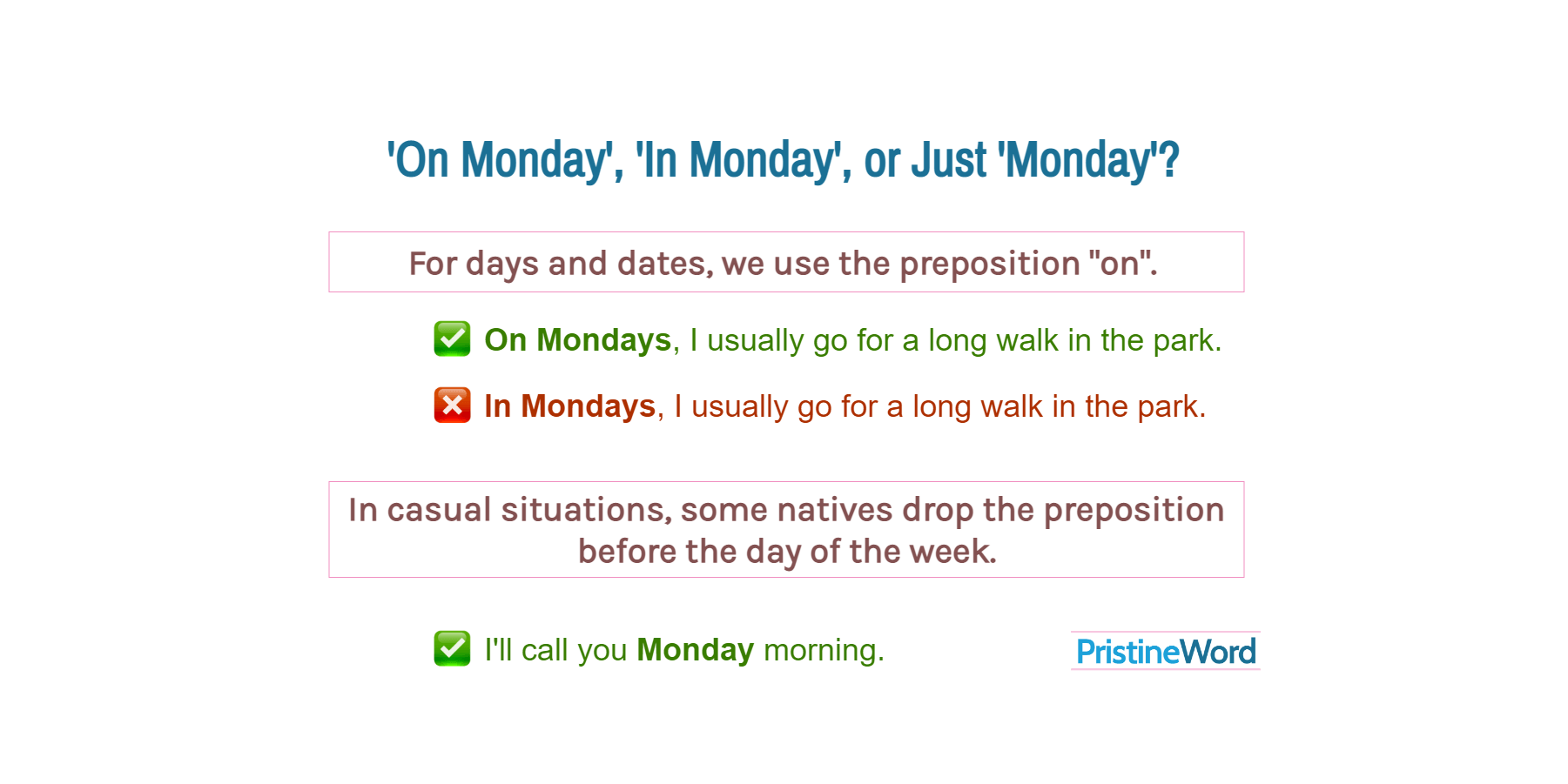It's "on Monday." For days and dates, we use the preposition "on". In casual situations, many natives omit the preposition before the day of the week.
We say "on Monday". We always use the preposition "on" for days and dates.
On Monday, my husband and I woke up early to practice yoga.
In Monday, my husband and I woke up early to practice yoga.
When using the plural form (Mondays), follow the same rule.
My girlfriend and I usually go for a long walk on Mondays.
In informal situations, some natives omit the preposition before "Monday." This is much more common in American English.
I'll call you Monday evening.
I'll call you on Monday evening.
We can use the article "a" to talk about one of the Mondays in the year.
His birthday's on a Monday this year.
Instead of "on", you can use other determiners or adjectives, such as:
-
Every:
Every Monday morning, Sarah wakes up early to meditate.
-
This:
This Monday is Mother’s Day.
-
Last:
Last Monday, my girlfriend and I went for a relaxing stroll along the beach.
-
Next:
The deadline for submitting the project is due next Monday.
Note that when we say "every", "this", "last", or "next", we don't use the preposition "on".
We'll call you next Monday.
We'll call you on next Monday.
Follow the same preposition strategy with the rest of the days of the week:

